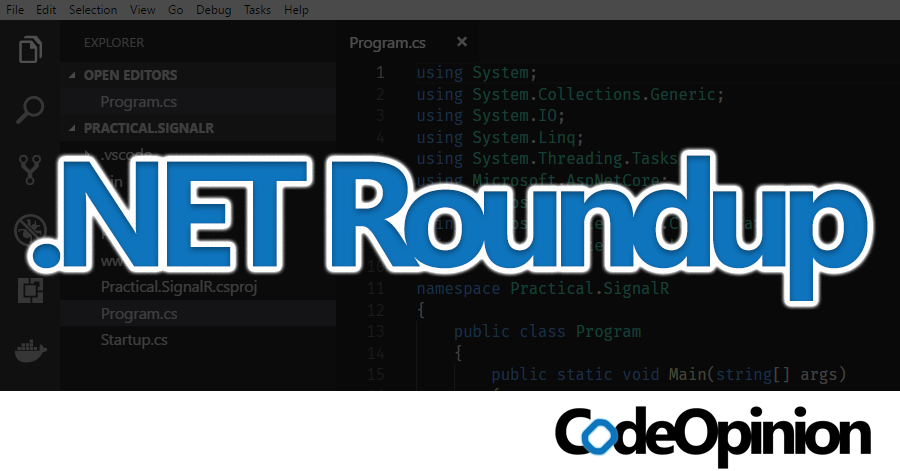Sponsor: Using RabbitMQ or Azure Service Bus in your .NET systems? Well, you could just use their SDKs and roll your own serialization, routing, outbox, retries, and telemetry. I mean, seriously, how hard could it be?

Here are the things that caught my eye recently in .NET. I’d love to hear what you found most interesting this week. Let me know in the comments or on Twitter.
Announcing Distributed Application Runtime (Dapr)
Dapr is an open source, portable, event-driven runtime that makes it easy for developers to build resilient, microservice stateless and stateful applications that run on the cloud and edge. Dapr embraces the diversity of all programming languages and developer frameworks and simplifies building applications such as the e-commerce example.
.NET Core 3.0 concludes the .NET Framework API porting project
We started in .NET Core 1.0 with a very minimal API set that only included ~18K of the .NET Framework APIs. With .NET Standard 2.0, we tried to make it much more viable to share code between .NET Framework, .NET Core, and Xamarin which resulted in approximately 38K .NET Frameworks APIs being available in .NET Core 2.0. We also built the Windows Compatibility Pack which made another 21K .NET Framework APIs available to .NET Core, resulting in almost 60K additional APIs. And in .NET Core 3.0 we added WPF and WinForms, which increased the number of .NET Framework APIs ported to .NET Core to over 120k, which is more than half of all .NET Framework APIs.
Link: https://github.com/dotnet/announcements/issues/130
EF Core 3 to target .NET Standard 2.0
The feedback from you and others is that EF Core made the jump to .NET Standard 2.1 too soon. A lot of apps are still transitioning to .NET Core, and the ecosystem of libraries (especially WinForms and WPF) is also still translationing. Even UWP and Unity aren’t ready for .NET Standard 2.1 yet.
After investigating this, we discovered that a lot more of corefx has been backported to .NET Standard 2.0 than we originally anticipated when we made the decision to target .NET Standard 2.1.
Given your feedback and the unexpectedly low cost of maintenance–remember, we’re just a small team of five engineers–we decided it was probably worth implement this.
We hope that one last LTS release on .NET Standard 2.0 will give everyone a chance to catch up to the vision of .NET 5.
Link: https://github.com/aspnet/EntityFrameworkCore/issues/18141#issuecomment-542798580
ASP.NET Core Performance Best Practices
I never noticed this portion of the docs and found it really interesting to see some best practices, particularly around the performance reliability. I really like the DO vs DO NOT examples.